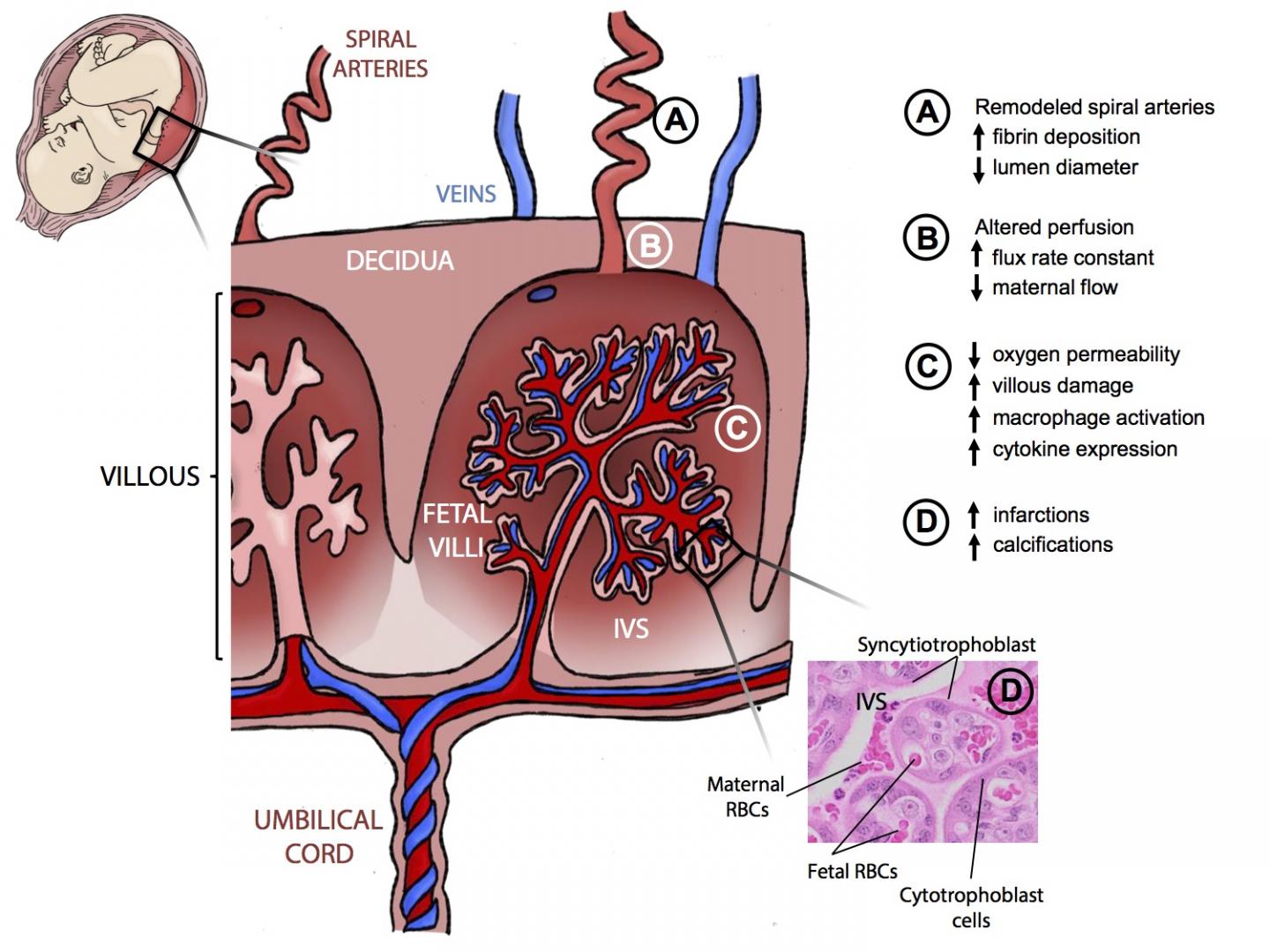By IDSE News Staff
New animal research shows that Zika virus damages a pregnant mother’s placenta.
As a result, the researchers saw less oxygen being transported across the placenta and to the baby. Decreased oxygen levels in a placenta can impair fetal development and ultimately the health of a baby after he/she is born.
ADVERTISEMENT
“The role of a placenta is to protect and provide nutrition to a growing baby for optimum health,” said one of the paper’s corresponding authors, Antonio Frias, MD, an obstetrician and gynecologist at Oregon Health & Science University, in Portland. “It’s concerning how much damage the Zika virus can do to a placenta.”
The researchers examined how Zika virus infection effects in five pregnant rhesus monkeys caused placental tissues to become thickened and inflamed (Nat Commun 2018 Jan 17. [Epub ahead of print]).

The artist’s image of a placenta shows how Zika virus can affect a mother’s womb. The maternal blood vessels that feed into the placenta (A) become narrower and limit blood flow to the fetus (B). The leaflike villi (C) that enable a fetus to receive oxygen-rich blood, absorb nutrients, and remove waste also become damaged. Seen here under a microscope (D), representative cells that make up a placenta’s fetal villi also become damaged when a pregnant mother becomes infected with Zika. Image: OHSU
They used a noninvasive, in vivo MRI technique to evaluate oxygen levels inside the placenta and oxygen flow between mother and baby. They found that, in monkeys that were infected with Zika early in their pregnancies, the rate of oxygen transport through the placenta decreased about 10-fold.
The OHSU research team also determined that Zika virus can readily pass from mother to baby and remain in the baby long term, leading to a chronic infection in utero. These findings may provide important insights into the mechanisms by which Zika virus causes disease during pregnancy that results in microcephaly in newborns.
By better understanding how both mother and child become infected with and affected by Zika virus, researchers can determine how to prevent its infection and disease. The OHSU research team is trying to develop a safe and effective Zika vaccine for use during pregnancy.
from virus zika - Google News http://ift.tt/2G6kgdr
EmoticonEmoticon